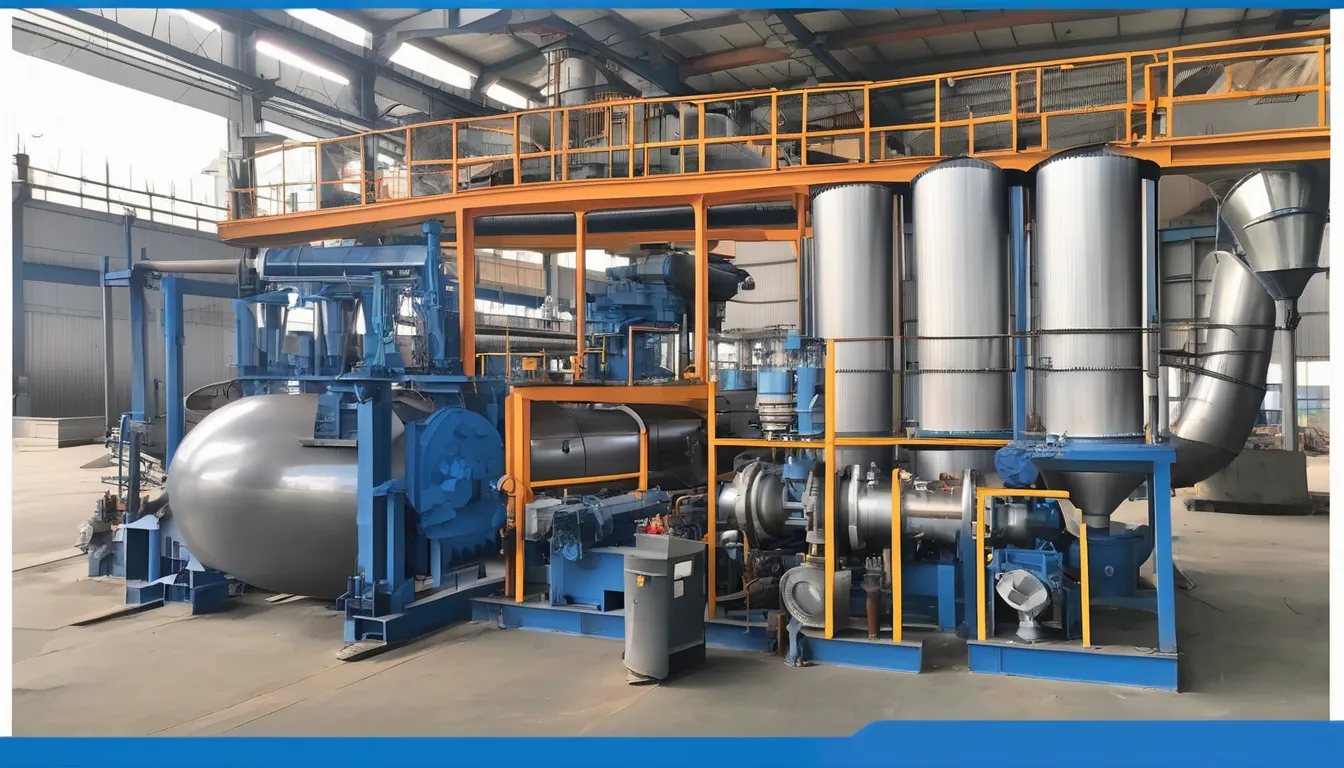When you consider the role of turbo expanders in process optimization, it’s clear that these devices play a pivotal role in enhancing energy efficiency across various industries. By converting high-pressure gas streams into usable mechanical energy, you can significantly lower operational costs and improve performance. However, the benefits extend beyond mere efficiency and cost savings. As industries face increasing pressures to meet sustainability goals, the impact of turbo expanders on emissions and maintenance requirements raises important questions about future applications. What might this mean for the evolution of industrial processes?
Overview of Turbo Expanders
When you think about energy efficiency in industrial processes, turbo expanders often come to mind as key players. These devices convert the energy from high-pressure gas streams into mechanical energy, which can then be used to drive generators or compressors. By doing so, turbo expanders not only reduce energy consumption but also enhance overall system efficiency.
Turbo expanders operate under the principles of thermodynamics, specifically the Joule-Thomson effect. As gas expands through the expander, it cools and loses pressure, allowing you to harness its energy effectively.
You’ll find these devices in various applications, including natural gas processing, refrigeration systems, and power generation, where they contribute significantly to energy recovery.
One of the standout features of turbo expanders is their ability to operate over a wide range of flow rates and pressures. This flexibility makes them suitable for different industrial setups.
Moreover, their design promotes low maintenance and long operational life, making them a cost-effective choice for many facilities. Understanding how turbo expanders function and their benefits can help you optimize your processes and achieve your energy efficiency goals.
Energy Recovery Mechanisms
Understanding energy recovery mechanisms is crucial for maximizing the efficiency of turbo expanders in industrial applications. These mechanisms allow you to capture and reuse energy that would otherwise be wasted during the expansion process. By harnessing this energy, you can significantly improve your overall system performance.
One key mechanism involves the conversion of high-pressure gas into mechanical energy. When gas expands through the turbo expander, it loses pressure and temperature. Instead of letting this energy dissipate, you can use it to drive a generator or pump, effectively turning waste energy into usable power.
Another method is integrating the china Turbo Expander with other processes. For example, coupling it with heat exchangers can help recover thermal energy from the gas. This recovered heat can be redirected to preheat incoming fluids or generate steam, enhancing the overall efficiency of your system.
Applications in Industry
How do turbo expanders fit into various industrial processes? You’ll find them playing a crucial role in gas processing, refrigeration, and power generation.
In gas processing, turbo expanders utilize the high-pressure gas’s energy to reduce its pressure, allowing for efficient separation of components. This is vital for maximizing the yield of valuable products like ethane and propane.
In the refrigeration sector, turbo expanders help improve efficiency by allowing the expansion and cooling of refrigerants. By harnessing energy during this process, you can achieve better temperature control while reducing overall energy consumption.
In power generation, turbo expanders convert excess pressure energy from steam or gas into mechanical energy, which can then drive generators. This application is particularly beneficial in combined cycle systems, where you can maximize the energy extracted from fuel.
Additionally, in the petrochemical industry, turbo expanders assist in optimizing processes by recovering energy from various streams, increasing overall efficiency.
Whether you’re in gas processing, refrigeration, or power generation, turbo expanders are essential tools that enhance performance and sustainability across multiple industrial applications.
Benefits for Process Optimization
Turbo expanders are game-changers for process optimization, providing significant benefits across various industries. By enhancing energy recovery and improving efficiency, they help you minimize operational costs while maximizing output. You’ll notice that turbo expanders can significantly reduce waste, allowing you to make the most out of your resources.
Here’s a quick look at some key benefits:
| Benefit | Description | Impact |
|---|---|---|
| Energy Efficiency | Turbo expanders convert excess energy into usable power. | Lowers energy consumption. |
| Cost Reduction | Reduces operational costs by optimizing performance. | Increases profit margins. |
| Environmental Impact | Decreases greenhouse gas emissions through efficient energy use. | Supports sustainability goals. |
Implementing turbo expanders in your processes can lead to a leaner operation, helping you remain competitive. You’ll find that improved system reliability and reduced maintenance needs keep things running smoothly. As you strive for continuous improvement, turbo expanders can be a vital component in your strategy for achieving higher efficiency and lower costs. Don’t underestimate their potential—they’re essential tools for your process optimization efforts.
Future Trends and Innovations
As industries evolve, the integration of advanced technologies and innovative designs in turbo expanders is reshaping the landscape of process optimization.
You’ll see trends focusing on energy efficiency, enhancing performance, and driving sustainability. One key innovation is the use of smart sensors and IoT technology, enabling real-time monitoring and predictive maintenance. This means you can optimize operations and reduce downtime significantly.
Moreover, advancements in materials science are leading to lighter and more durable components, which can withstand higher pressures and temperatures. This enhancement not only boosts efficiency but also extends the lifespan of turbo expanders.
You can also expect to see improved computational fluid dynamics (CFD) models, allowing for more precise designs tailored to specific applications.
Another trend is the move toward modular designs, making it easier to upgrade existing systems without a complete overhaul. This adaptability will help you stay competitive in a rapidly changing market.
As you embrace these future trends and innovations, you’ll find that turbo expanders will play an increasingly vital role in achieving optimal performance while minimizing environmental impact.
Keep an eye on these developments; they’ll shape the future of process optimization.
Conclusion
Incorporating turbo expanders into your processes can significantly boost efficiency and reduce costs. By capturing and reusing energy, these systems not only enhance performance but also support sustainability goals. As industries continue to evolve, staying ahead with innovations in turbo expander technology will be crucial. Embracing these advancements can give you a competitive edge, ensuring your operations are leaner and more environmentally friendly. Don’t miss out on the benefits turbo expanders can bring to your business.




